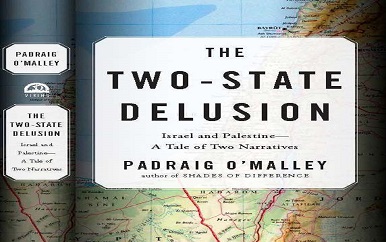- Home
- Moakley
About Us
The work of the Moakley Chair addresses the tragic crisis of divided societies around the world, in large part, by reinforcing a commitment to nonviolent methods among all participants in the reconciliation process.
Central to the mission of the Moakley Chair is encouraging McCormack students to be participants in the chair’s work by providing them with real policy- and peacemaking experience.
Guiding principles of the chair’s work:
- People from divided societies are in the best position to help people in other divided societies. Former protagonists are best equipped to share their difficult journeys to abandon violence as the instrument to achieve their political aims and open the gateways to recovery, reconstruction, and reconciliation.
- Securing the initially established peace can be fostered by citizens of divided cities working together in jointly sponsored, sustainable development and environmental restoration projects that directly benefit the citizenry and build a foundation of cooperation for the future, i.e., they can do together what they cannot do individually.
Moakley Biography
Studying evenings, he graduated from law school at Suffolk University in 1956. According to a biography at his alma mater, “His legal education helped bring out his extraordinary character as he went on to make life better for untold numbers of people - not only his constituents, but also people across the state and around the world.”
His early political career also included positions as a state senator (1965-1970) and a Boston city councilor (1971-1972) before going on to fill the congressional seat once held by Speaker John W. McCormack. Elected to the U.S. House of Representatives in 1973, Moakley proudly represented the Massachusetts’ 9th District for nearly 30 years.
As chairman of the House Rules Committee, he was one of the most powerful members of Congress. His investigation of the murder of six Jesuits in El Salvador paved the way to a peaceful settlement between the rebels and the Salvadoran government.
Moakley was considered an “average Joe” and is fondly remembered as a compassionate and capable public servant. One staffer described him this way, “A self-described ‘bread and butter’ politician, Moakley devoted himself to the bedrock concerns of his constituents: education, jobs, housing, health care, veteran’s benefits, and the prosperity of his city, his state, and his region.” Under his leadership Boston benefited from many economic and other improvements including development of the waterfront, clean-up of the harbor, funding for the “Big Dig” and third Harbor Tunnel, as well as passage of landmark legislation resulting in affordable housing.
Moakley died of leukemia in 2001.
In 2002, the John Joseph Moakley Chair for Peace and Reconciliation was established in his memory at the McCormack Graduate School of Policy Studies. Padraig O'Malley is the first to hold the chair.
Congressman Moakley delivering the 1986 Commencement address
Read more about the life and legacy of Moakley
Read this special edition of the New England Journal of Public Policy, edited by Padraig O'Malley.
Read More

